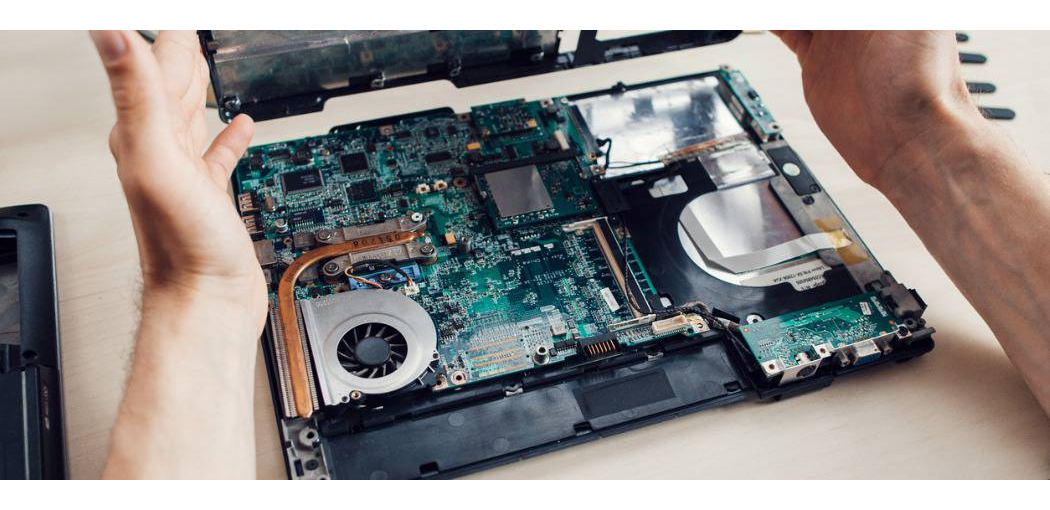Building a powerful PC can be an exciting project, but it requires a good understanding of the essential hardware components involved. Whether you’re building a gaming rig, a workstation, or a general-purpose computer, selecting the right components is crucial for optimal performance. This guide will help you understand the key hardware components you need and how they contribute to your PC’s overall performance. Fusion hardwares is the place where you can find everything related to computer hardwares.
Building a PC allows for customization and optimization according to your specific needs. This guide breaks down each component, explaining its role and importance in the overall system.
Central Processing Unit (CPU)
What is the CPU?
The CPU, or Central Processing Unit, is the brain of your computer. It performs all the calculations and tasks needed to run applications and the operating system.
Choosing the Right CPU
When selecting a CPU, consider the following:
- Cores and Threads: More cores and threads allow for better multitasking and performance in demanding applications.
- Clock Speed: Higher clock speeds result in faster processing.
- Compatibility: Ensure the CPU is compatible with your chosen motherboard.
Popular CPU Brands
- Intel: Known for high performance and reliability, with popular series like Core i5, i7, and i9.
- AMD: Offers excellent value for money, with the Ryzen series being a favorite among gamers and professionals.
Motherboard
What is the Motherboard?
The motherboard is the main circuit board that connects all the components of your PC. It allows communication between the CPU, RAM, storage, and other hardware.
Choosing the Right Motherboard
Consider these factors:
- Socket Type: Must match the CPU.
- Form Factor: Common sizes include ATX, microATX, and miniITX.
- Features: Look for features like USB ports, PCIe slots, and overclocking capabilities.
Popular Motherboard Brands
- ASUS
- MSI
- Gigabyte
- ASRock
Random Access Memory (RAM)
What is RAM?
RAM, or Random Access Memory, is the short-term memory of your computer. It stores data that the CPU needs quick access to, improving overall performance.
Choosing the Right RAM
Key considerations include:
- Capacity: For gaming and general use, 16GB is a good starting point. For more intensive tasks like video editing, 32GB or more is recommended.
- Speed: Higher speed RAM can improve performance, especially in memory-intensive applications.
- Type: Ensure compatibility with your motherboard (e.g., DDR4, DDR5).
Storage Solutions
Types of Storage
- Hard Disk Drives (HDDs): Offer large storage capacities at a lower cost but are slower.
- Solid State Drives (SSDs): Provide faster data access speeds, improving overall system responsiveness. NVMe SSDs are even faster than traditional SATA SSDs.
Choosing the Right Storage
- Capacity: Consider your storage needs for applications, games, and media.
- Speed: SSDs offer significant performance advantages over HDDs.
- Reliability: Choose reputable brands to ensure data safety.
Graphics Processing Unit (GPU)
What is the GPU?
The GPU, or Graphics Processing Unit, handles rendering images, videos, and animations. It’s crucial for gaming, video editing, and other graphic-intensive tasks.
Choosing the Right GPU
Consider these factors:
- Performance: Look for benchmarks and reviews that match your use case.
- VRAM: More VRAM (Video RAM) allows for better performance in high-resolution gaming and professional applications.
- Compatibility: Ensure the GPU fits in your case and is compatible with your power supply.
Popular GPU Brands
- NVIDIA: Known for high-performance GPUs with features like Ray Tracing and DLSS.
- AMD: Offers competitive performance at various price points.
Power Supply Unit (PSU)
What is the PSU?
The PSU, or Power Supply Unit, provides power to all components in your PC. It’s crucial for the stability and longevity of your system.
Choosing the Right PSU
Consider these factors:
- Wattage: Ensure the PSU can provide sufficient power for all components. Use online calculators to estimate your power needs.
- Efficiency: Higher efficiency PSUs generate less heat and use less electricity. Look for 80 PLUS certification.
- Modularity: Modular PSUs allow you to connect only the cables you need, improving cable management.
Case
What is the Case?
The case houses all your PC components, providing protection and cooling. It also contributes to the overall aesthetics of your build.
Choosing the Right Case
Consider these factors:
- Size: Ensure the case fits your motherboard and GPU.
- Cooling: Look for cases with good airflow and options for additional fans or liquid cooling.
- Design: Choose a design that fits your aesthetic preferences and has features like tempered glass panels or RGB lighting.
Cooling Solutions
Importance of Cooling
Proper cooling is essential to maintain optimal performance and longevity of your components. Overheating can lead to throttling and damage.
Types of Cooling
- Air Cooling: Involves fans and heatsinks. It’s cost-effective and sufficient for most builds.
- Liquid Cooling: Offers better cooling performance and is ideal for overclocked systems or aesthetic builds.
Conclusion
Building a powerful PC involves understanding and selecting the right components. Each piece of hardware plays a crucial role in the overall performance and functionality of your system. By carefully choosing your CPU, motherboard, RAM, storage, GPU, PSU, case, and cooling solutions, you can create a custom PC that meets your specific needs, whether for gaming, professional work, or general use





